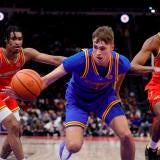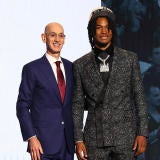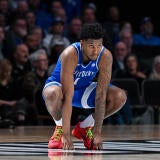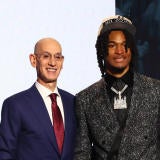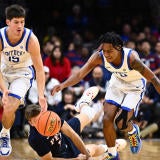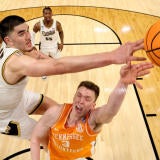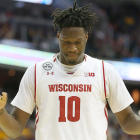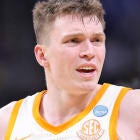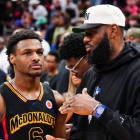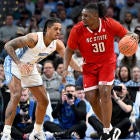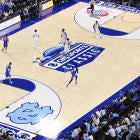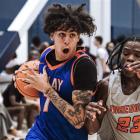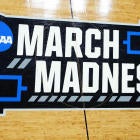Former Wisconsin star Nigel Hayes said Tuesday that his team discussed boycotting a game during the 2016-17 season as a way of protesting the NCAA's rules on athletes getting paid.
Hayes admitted as much this week during a panel discussion called "Future of College Sports: Reimagining Athlete Pay." in which he said that he proposed the boycott take place in a group chat with teammates during the team's battle against Syracuse in the Big Ten/ACC Challenge on Nov. 29, 2016, which was aired on ESPN and featured two nationally ranked teams.
The team ultimately did not boycott the game (Wisconsin won running away, 90-70), but there was a discussion had about it.
"I knew 90 percent of the guys were on board from the get-go, before I asked the question," Hayes said via USA Today. "But I let them know that if one of you guys says no, we won't do it because, obviously, we're a team and we're going to stick together.
"In hindsight, I think those guys that said no would change their mind now. That's usually what happens. The guys who don't go on to the NBA, once they leave college, they look back and say, 'Wow, I was exploited – and now I have nothing to show for,' .. So, I think we missed our opportunity, but hopefully this word gets out and it will inspire a group of kids that are in college now or will be in college."
Hayes, who is now with the Sacramento Kings, was the poster child for college athletes standing up against the NCAA while in college. A sign he carried asking for money at a College Gameday event went viral during his time in Madison, and he was never one to shy away from speaking out against the NCAA and its amateurism model.
Hayes' idea to boycott the game isn't a new one – he spoke about it last fall – but his new comments in a panel setting, and a prediction that a player-boycott will eventually occur, bring light to the fact that it was a lot closer to happening than many might have imagined.
"With all the money that's being made that the players are not receiving, there's going to be a point where the players don't play," said Hayes. "It's going to take the right player or the right team in the right big-game setting … but if you want to get something done, boycott it. That's the best way to get anything done … I think it's something that if we did go through with it, we'd probably be having a very different conversation right now."


